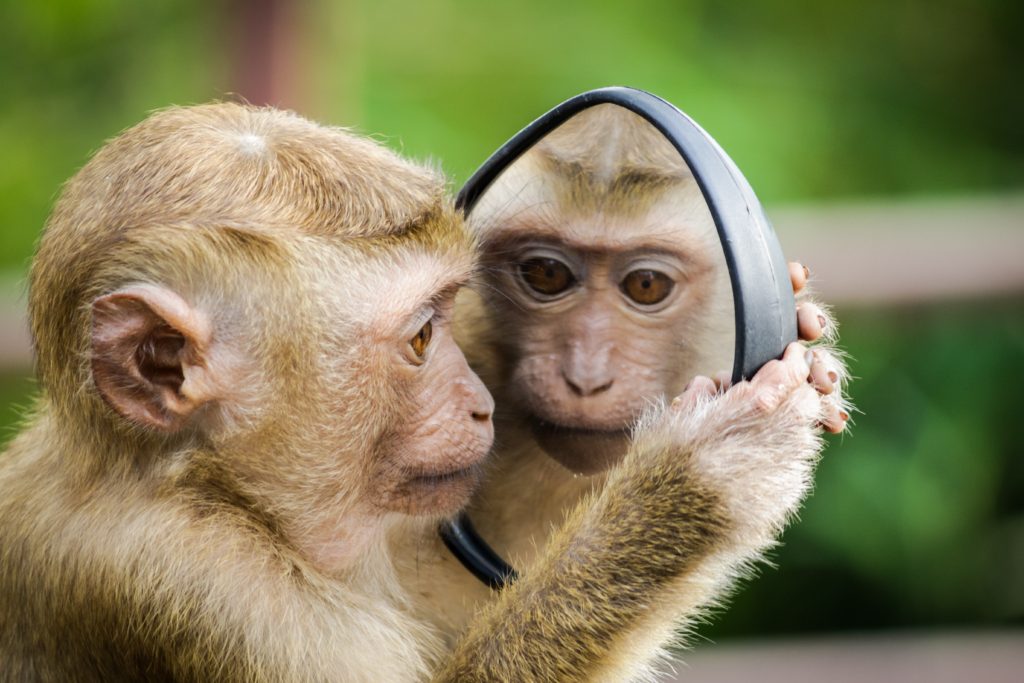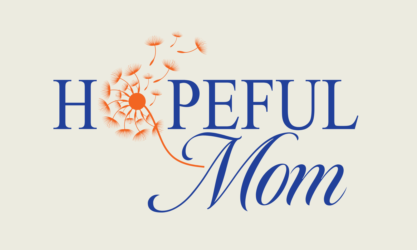I saw the questioning look in his eyes. I interpreted it as, “Should I tell her? How will she respond?” I had seen that look in his sister’s eyes before, too. It typically appeared when there was something that needed to be said but no one wanted to be the one to upset mom. Someone put a scratch in the floor when they dropped a utensil. A red sock turned the white clothes pink. (Okay, I made that up. We’re not particular about the laundry, and this has never happened to me.) One son backed into the other son’s vehicle. Bad news. Upsetting information. An incriminating tale.
Our youngest son broke his leg at a trampoline park. When asked if they should call his mom or call an ambulance, he chose the ambulance. (To be fair, he needed an ambulance!) When I arrived at the hospital, he put on a brave face and reassured me he was okay. He didn’t want to see evidence of his mom in distress. He didn’t want to cause me pain. But it’s not my child’s job to protect me.
It’s My Job to Protect You
We were at the kitchen table. I was reading, and my son was finishing schoolwork. He looked up at me. I saw the questioning look in his eyes, so I asked, “Is everything okay?”
“Yeah,” he replied. I wasn’t convinced.
“Is something upsetting you? Is there something you want to talk about?” I probed.
“Well, I’m feeling tempted.” No further details were needed. I knew he was referring to the temptation to watch pornography. My heart raced. My throat closed. I felt the anxiety rising.
And I saw my son watching me.
“Okay,” I said more calmly than I felt. “Tell me more.” He proceeded to explain his thoughts and emotions. We talked it out and formulated a plan to combat his temptations.
Before I finished the conversation, I said, “David*, it’s not your job to protect me. If something is bothering you, please come to me, even if you know it will upset me. I’m the parent. It’s my job to protect you, not the other way around. Even if your news makes me angry or causes me grief, I can handle it. I’m an adult. I’d rather live in reality than a fabricated world because you don’t feel comfortable coming to me. I may be emotional but that doesn’t mean I don’t want to know. I love you unconditionally. Nothing you tell me will change that.”
Kids are Reluctant to Cause Pain
In general, our kiddos want to protect us from heartache or heartbreak. They are compassionate and perceptive. They may also experience guilt when they see us suffering in pain or anguish, especially if they have a history of causing it. The fact is children struggling with porn have ignited worry, doubt, fear, misery, and anger. If they are aware of these past instigations, they may be reluctant to initiate another incident. I applaud their sensitivity and thoughtfulness. But it’s not my child’s job to protect me.
We can’t dodge emotions and feelings. To some degree, they are healthy indicators. They signal to us that something needs tended to. We want our children to understand that it’s okay to experience emotions. One of the best ways we can teach this is to allow them to observe us treating our emotions properly. For example, it’s normal for me to feel angry or disappointed when my son tells me he is tempted. However, if I lash out at him, he will be reluctant to confide in me the next time he has temptations. On the opposite end, if I pretend as if I am not affected, he will sense my false front and believe I am insincere. A healthy balance for me is to acknowledge my thoughts and feelings out loud but not allow them to dictate my behavior. I may say, “That is disappointing. But we will get through this together. I still love you, and I’m proud of you for coming to me.”
They Mirror Our Emotions & Behaviors

Our kiddos will subconsciously mirror our emotions. It’s how humans are designed. Have you noticed how easily someone else’s tension causes you tension? It’s more prominent if the other person is someone you care about. If my husband is stressed, I’m more likely to be stressed than if I sense stress in my neighbor or co-worker. The same applies to our kiddos. They love us, are seeking our acceptance, and are observing us. Our moods and emotions rub off on them. Therefore, be aware of how you interact with your child, especially when the conversation is centered around a vulnerable subject matter. We want our kiddos to respect us and see us as responsible adults who can handle tough situations.
I’m not saying you can’t have emotions. I am saying that our children can’t fix us, and it’s not their job to protect us from upsetting situations. When we expose our inner thoughts and feelings to our children, they feel responsible. That’s added pressure they do not need. It’s not my child’s job to protect me.
I highly recommend finding someone you can talk with about your child’s pornography struggles. Speak with your spouse, but also find someone outside your home. Confide in a friend. Seek counseling. Talk with a pastor. Send me an email. Start a conversation in the comment section. We need each other. You are not alone.
What’s keeping you from talking about your struggles? Fear of judgment? Stigma? Don’t know where to start? Let me know in the comments.
Will you do me a favor? This important topic needs talked about. Will you share this post on your social media account?
Be sure to connect with me on Facebook and subscribe for updates to receive a FREE resource: 7 ACTIONS WHEN YOUR CHILD HAS SEEN PORN. Thank you! *Not his given name.
About the author
Barb Winters is the author of Sexpectations: Helping the Next Generation Navigate Healthy Relationships and founder of Hopeful Mom. She’s a certified mental health coach and offers one-on-one consultations for parents. For more about Barb, click "About" in the menu.



